Parallel Updates

Can iPhone parallel imports be updated normally ?
**Can iPhone Parallel Imports Be Updated Normally?** - **iOS Updates:** Available globally for all iPhones, including parallel imports. - **App Updates:** Unaffected by the import status, updates through the App Store are standard. - **Considerations:** Warranty, support, and carrier compatibility may vary. - **Conclusion:** Parallel imports can be updated normally but come with additional considerations.

Is there a warranty for iPhone parallel imports ?
Parallel imports of iPhones are not directly imported by the manufacturer or authorized distributors, but rather by third-party resellers who purchase the devices from other countries and sell them in their own country. These phones may not come with a warranty from the manufacturer or authorized service providers. According to Apple's warranty policy, products purchased from an unauthorized reseller are not eligible for coverage under the Apple One-Year Limited Warranty. This means that if you buy a parallel import iPhone, it will not be covered by Apple's standard warranty. Some resellers of parallel imports may offer their own warranties or extended service plans, but these warranties are typically less comprehensive than those offered by Apple and may have limitations on what is covered. Purchasing a parallel import iPhone can come with certain risks, including no manufacturer support, potential quality issues, difficulty in repairs, and software updates might be delayed or unavailable for parallel imports due to regional differences in network compatibility and software certification processes. Before deciding to purchase a parallel import iPhone, consider the following factors: cost savings vs. risk, reseller reputation, understand your rights as a consumer, and explore alternative options such as refurbished models sold by Apple or certified pre-owned devices from reputable sources that still offer some form of warranty protection.

What risks are involved in buying an iPhone parallel import ?
Purchasing an iPhone through a parallel import, which means buying it from a source other than the authorized dealer or official Apple store, can pose several risks. Here are the potential dangers and drawbacks you should consider before making such a purchase: - **Lack of Warranty or Support**: Parallel imports often do not come with the standard warranty provided by Apple. If something goes wrong with your device, you may have to pay for repairs out of pocket. You may not have access to Apple's customer support services, which can be crucial for troubleshooting and technical assistance. - **Uncertainty About Product Authenticity**: There is a risk of buying counterfeit iPhones that look like the real product but perform poorly and lack the quality of genuine Apple devices. Some parallel imports may have undergone unauthorized repairs or modifications that could compromise the device's functionality and durability. - **Difficulties with Software Updates**: Parallel imports might not receive software updates at the same time as officially purchased iPhones, or might not receive them at all. Updates may not be compatible with your device if it has been altered or is not an authentic Apple product. - **Hardware Variations**: The iPhone model you receive might vary slightly in hardware specifications compared to the version sold in your country. Your iPhone might not be optimized for local networks, leading to issues with connectivity and signal strength. - **Aftermarket Accessories Compatibility**: Accessories like cases and screen protectors bought locally might not fit perfectly due to slight variations in the phone's dimensions. - **Guarantee of Return or Exchange**: Returns or exchanges can be more complicated with parallel imports, as the seller's policies might be less consumer-friendly than those of official retailers. - **Potential for Financial Fraud**: Unscrupulous sellers might take advantage of buyers, selling fake or stolen goods, or even taking payment without delivering the product.

Are iPhone parallel imports covered by the national three-pack policy ?
The National Three-Pack Policy is a set of regulations aimed at protecting consumers' rights and interests in purchasing electronic products, including mobile phones. iPhone parallel imports are Apple iPhones that are imported into a country through channels other than the official Apple distributor. These imports may come from different regions or countries where the iPhone models are sold at a lower price. The coverage of parallel imports under the national three-pack policy is often ambiguous. Some parallel importers may offer their warranty and service support, but it may not be equivalent to what is provided by official channels. While most parallel imports are genuine iPhones, there is a risk of encountering counterfeit or refurbished devices that do not meet the same quality standards as those sold through official channels. Parallel imports can be cheaper since they may come from regions with lower pricing or take advantage of currency exchange rates. However, this lower price comes with potential risks regarding warranty, service support, and product quality. Consumers should carefully consider the potential risks and benefits before opting for parallel imports. It is essential to ensure that you are buying from a reputable seller who can provide adequate warranty and service support for your iPhone purchase.

What should I pay attention to when buying an iPhone parallel import ?
Buying an iPhone parallel import requires careful consideration and research to ensure that you get a genuine product at a fair price. Here are some tips to help you make a wise purchase: # 1\. Check the Seller's Reputation Make sure you buy from a reputable seller with good reviews and feedback. You can check online forums or social media platforms for reviews and recommendations from other buyers. # 2\. Ensure Compatibility with Your Network Before making a purchase, check if the iPhone is compatible with your local network provider. Some parallel imports may not work on certain networks due to differences in technology standards. # 3\. Check for Warranty and After-sales Service Parallel imports may not be covered by the manufacturer's warranty, so it's essential to check if the seller offers any warranty or after-sales service. This will give you peace of mind and protection against any potential issues that may arise. # 4\. Verify the Authenticity of the Product Be cautious of counterfeit products that may look like genuine iPhones but are actually fake. Check for signs such as misspellings, low-quality materials, or incorrect logos. You can also verify the authenticity of the product by checking the serial number on Apple's website. # 5\. Be Aware of Customs Duties and Taxes Parallel imports may be subject to customs duties and taxes, which can add up to the overall cost of the product. Make sure you factor in these additional costs when comparing prices with locally sourced iPhones. In conclusion, buying an iPhone parallel import requires careful consideration and research to ensure that you get a genuine product at a fair price. By following these tips, you can make an informed decision and enjoy your new iPhone without any issues.

How does a Series Hybrid Electric Vehicle compare to a Parallel Hybrid Electric Vehicle ?
Comparison between Series Hybrid Electric Vehicle and Parallel Hybrid Electric Vehicle highlights the differences in power transmission, battery dependency, fuel efficiency, performance, cost, complexity, and regenerative braking capabilities of both types. The series hybrid is more efficient for city driving, while the parallel hybrid suits highway driving better. The choice depends on the user's driving habits and needs, with both offering environmental and economic benefits over traditional vehicles.
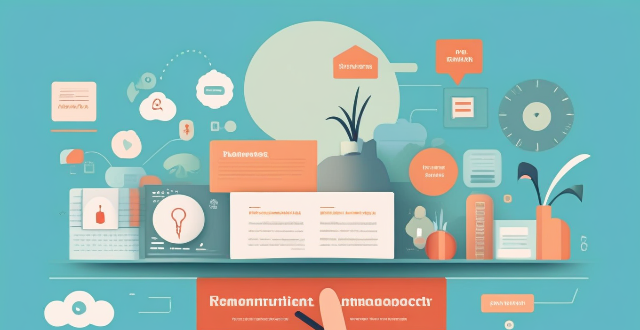
How can I distinguish between a genuine iPhone and a parallel import ?
This guide provides a comprehensive overview of the key differences between genuine iPhones and parallel imports, emphasizing the importance of purchasing a genuine product to ensure warranty, software support, and hardware quality. It offers practical steps to identify a genuine iPhone, including checking model numbers, verifying IMEI numbers, inspecting packaging and device craftsmanship, looking for Apple's certification marks, visiting authorized resellers, and using online tools. The conclusion encourages readers to make informed decisions when buying an iPhone and to prioritize purchasing from reputable sources.
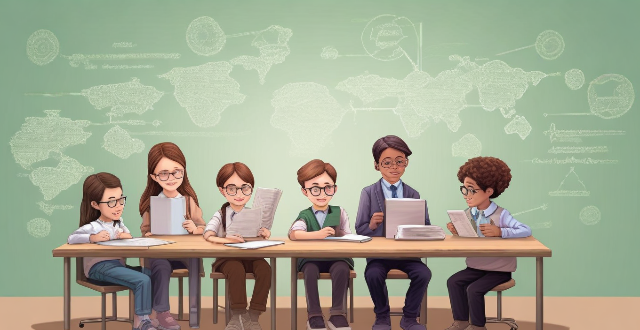
How will these education policy updates impact the future of education in our society ?
Education policy updates may increase access to education, emphasize STEM education, and improve student outcomes.
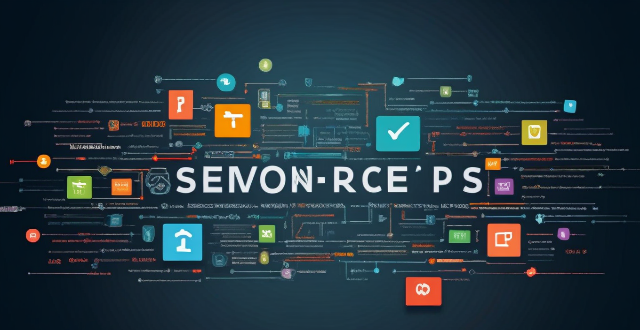
What is the importance of regular software updates in network security protection ?
Regular software updates are vital for network security protection, addressing vulnerabilities, improving performance, adding features, and maintaining compliance with industry standards. Best practices include establishing an update policy, using automated tools, testing updates, prioritizing critical updates, maintaining a system inventory, educating users, monitoring post-update issues, staying informed about threats, backing up data, and reviewing third-party applications for updates. Adhering to these practices reduces cyber threats and ensures the integrity of systems and data.

Is there a way to disable automatic updates in my Apple device ?
How to disable automatic updates in Apple device?

How will these education policy updates affect standardized testing ?
The recent education policy updates have brought significant changes to the landscape of standardized testing. These modifications are aimed at improving the overall quality and fairness of assessments while addressing concerns related to accessibility, equity, and relevance. The key changes include a shift towards holistic assessment, greater emphasis on accessibility and equity, and ensuring the relevance and validity of test content. By incorporating these elements into the admissions process, institutions can gain a more comprehensive understanding of applicants' strengths and weaknesses, leading to more informed decisions. Additionally, measures such as accommodations for students with disabilities, language support, and financial assistance aim to level the playing field for all students, regardless of their background or circumstances. Test developers are encouraged to align test content with curriculum standards, update question types and formats, and conduct regular reviews and evaluations to ensure that assessments remain valid and up-to-date with current educational practices. Overall, these updates aim to create a fairer and more effective system for evaluating students' academic performance.
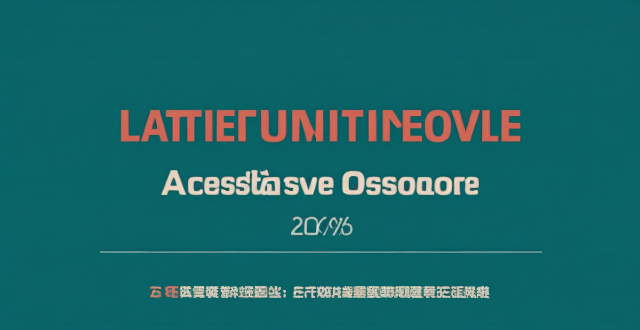
Did Apple introduce any new services or software updates at the event ?
Apple's latest event introduced several new services and software updates. The new services include Apple Music Voice Plan, Apple Maps with interactive 3D experience and immersive walking directions, and Apple Fitness+ with group workouts and integration with Apple Watch's activity rings. The software updates include iOS 15 with Focus Mode improvements, Live Text in Photos, and enhanced Memories; iPadOS 15 with App Library and Home Screen changes, multitasking improvements, and Quick Note and Scribble features; watchOS 8 with a Mindfulness app, new Workout app, Portrait Watch Faces, and respiratory rate tracking; and tvOS 15 with Home Screen updates, Shared With You, new interactive features, and HomeKit and accessory updates. These new services and software updates showcase Apple's commitment to enhancing the user experience across their ecosystem of devices.

How do I turn off automatic updates for apps on my Apple devices ?
Turning off automatic updates for apps on your Apple devices is a simple process that can be done through the device settings. Here's how to disable automatic app updates on iPhone, iPad, and Mac: **On an iPhone or iPad:** 1. Open the Settings App. 2. Navigate to the iTunes & App Store settings. 3. Toggle off Automatic Downloads under "Apps." 4. Confirm your choice in the pop-up. 5. Optionally toggle off App Updates to manually update all apps. **On a Mac:** 1. Open System Preferences. 2. Access the App Store settings. 3. Adjust Automatic Update settings by unchecking "Automatically check for updates" and "Install app updates." 4. Close the System Preferences to save changes. Disabling automatic updates gives you more control over when apps are updated but requires manual checking for updates to keep apps up-to-date and secure.

What are the implications of these education policy updates for higher education ?
Education policy updates have significant implications for higher education institutions, students, and educators. These policies can impact the quality of education, access to education, and the overall structure of higher education. One of the main implications is the potential for curriculum changes, which could lead to changes in course offerings, teaching methods, and assessment practices. Another implication is the need for faculty development, as educators may need to update their skills and knowledge to effectively implement new requirements. Changes to financial aid policies and admissions policies can also impact access to higher education. For example, if a policy requires universities to admit a certain percentage of underrepresented groups, institutions may need to revise their admissions processes to ensure compliance. Finally, education policy updates can influence the structure of higher education by modifying accreditation standards and promoting inter-institutional collaboration. It is essential for higher education stakeholders to stay informed about these policy updates and adapt accordingly to ensure that they continue to provide high-quality educational experiences for all students.
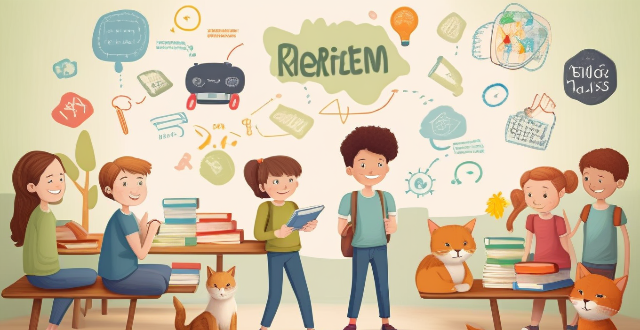
How do these education policy updates address issues related to diversity and inclusion ?
Education policy updates are crucial for addressing diversity and inclusion in schools. They aim to create an equitable learning environment that caters to the needs of all students, regardless of their background or identity. These updates contribute to promoting diversity and inclusion by recognizing and valuing diverse perspectives, providing access to education for all students, promoting cultural competency among educators, encouraging inclusive curriculum design, addressing bias and stereotyping, and supporting special education needs. By implementing these policies, schools can create a more equitable and inclusive learning environment that benefits all students, regardless of their background or identity.

How often do new hidden features get added to iOS updates, and how can I stay informed about them ?
New hidden features are often added to each major iOS update, which typically occurs once a year. However, minor updates and patches may also include new features or improvements that are not immediately obvious to users. Staying informed about new hidden features in iOS updates requires a combination of following official channels, subscribing to technology blogs and websites, joining online communities and forums, and attending Apple events and webinars.
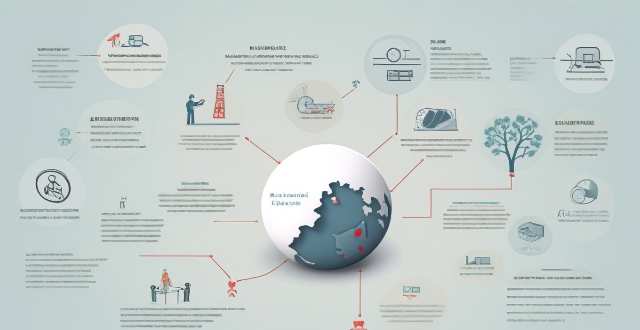
What measures are being taken to ensure the successful implementation of these education policy updates ?
Education policy updates are crucial for the development and improvement of education systems worldwide. Their successful implementation requires careful planning, coordination, and monitoring. This article discusses some measures being taken to ensure the successful implementation of these policy updates, including establishing clear objectives and goals, consulting with stakeholders, providing training and support, effective communication and awareness campaigns, regular monitoring and evaluation, and building collaborations and partnerships. By following these measures, we can ensure that our education systems continue to evolve and provide quality education to all students.

Why are iPhone parallel imports cheaper than authorized ones ?
iPhone parallel imports are cheaper than authorized ones due to different pricing strategies, tax differences, lack of warranty or support, and the risk of counterfeit products.

Are iPhone parallel imports eligible for Apple's after-sales service ?
iPhone parallel imports can be eligible for Apple's after-sales service if they meet certain conditions, including proof of purchase, valid warranty, no tampering, and region compatibility.

Are parallel hybrid electric vehicles (PHEVs) environmentally friendly ?
Parallel hybrid electric vehicles (PHEVs) are a type of hybrid vehicle that combines an internal combustion engine with an electric motor. While PHEVs have the potential to be more environmentally friendly than traditional gasoline-powered vehicles, their actual environmental impact depends on several factors, including the source of electricity used to charge the battery, the efficiency of the vehicle's components, and the driving habits of the user. One of the main benefits of PHEVs is their ability to reduce emissions compared to traditional gasoline-powered vehicles. By using both an electric motor and an internal combustion engine, PHEVs can achieve better fuel efficiency and lower emissions than conventional cars. However, the environmental impact of PHEVs also depends on how the battery is charged. If the electricity used to charge the battery comes from renewable sources such as solar or wind power, then the environmental benefits are even greater. On the other hand, if the electricity comes from coal-fired power plants or other non-renewable sources, then the overall environmental benefit may be reduced. Another factor that affects the environmental friendliness of PHEVs is the efficiency of their components. The more efficient the electric motor, battery, and internal combustion engine, the less energy they require to operate, which reduces their environmental impact. Manufacturers are constantly working to improve the efficiency of these components, which will help make PHEVs even more environmentally friendly in the future. Finally, the environmental impact of PHEVs also depends on how they are driven. If a driver primarily uses the electric motor for short trips around town and rarely uses the internal combustion engine, then the vehicle's overall environmental impact will be lower. On the other hand, if a driver frequently uses the internal combustion engine for long trips at high speeds, then the environmental benefits may be less significant. In conclusion, while parallel hybrid electric vehicles (PHEVs) have the potential to be more environmentally friendly than traditional gasoline-powered vehicles, their actual environmental impact depends on several factors. By taking these factors into account and making informed choices about how we use our vehicles, we can help reduce our impact on the environment and create a more sustainable future.

Can you drive a parallel hybrid electric vehicle (PHEV) on electricity alone ?
This article discusses the capabilities of parallel hybrid electric vehicles (PHEVs) and their ability to operate solely on electricity. It explains that PHEVs have an electric-only mode that allows them to drive without using the internal combustion engine, but this mode is typically limited to lower speeds and lighter load conditions. The article also highlights the benefits of electric-only driving, such as reduced emissions, quieter operation, and improved fuel efficiency. However, it notes that several factors can affect the electric-only range of a PHEV, including battery size, driving conditions, vehicle load, and tire pressure. Overall, the article emphasizes the importance of understanding your PHEV's capabilities and limitations to maximize its potential for eco-friendly driving.

How does a parallel hybrid electric vehicle (PHEV) work ?
Parallel hybrid electric vehicles (PHEVs) are a type of hybrid vehicle that combines an internal combustion engine (ICE) with an electric motor. The two power sources can work independently or together, depending on the driving conditions. PHEVs have three operating modes: ICE only, electric motor only, and combined power. The energy management system controls the operation of the ICE and electric motor, deciding which power source to use based on driving conditions, battery state of charge, and other factors. PHEVs offer benefits such as improved fuel efficiency, reduced emissions, tax incentives, and reduced dependence on fossil fuels.

What are the benefits of owning a parallel hybrid electric vehicle (PHEV) ?
Owning a parallel hybrid electric vehicle (PHEV) offers numerous benefits, including reduced emissions and conservation of fossil fuels, leading to environmental advantages. Economically, PHEVs provide fuel cost savings and potential tax incentives. They also offer performance benefits such as silent operation, regenerative braking, and instant torque. Additionally, PHEVs often come with advanced technology and features, preparing owners for a future with more electric vehicles. Overall, PHEVs combine environmental responsibility, economic savings, performance enhancements, and technological innovation, making them an attractive sustainable mobility option.
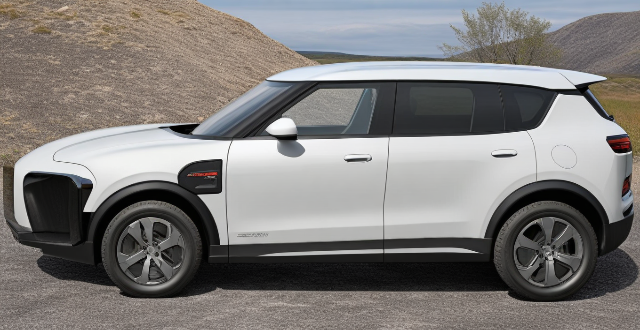
What is the range of a parallel hybrid electric vehicle (PHEV) ?
The range of a parallel hybrid electric vehicle (PHEV) depends on several factors, including battery size, driving habits, road conditions, and fuel economy. Larger batteries provide longer ranges, while smaller batteries offer shorter ranges. Driving habits also play a significant role in determining the range of a PHEV. Road conditions can affect the efficiency of both the internal combustion engine and electric motor, leading to lower overall range. The combined range of a PHEV typically falls within the range of 300-600 miles, depending on the model and driving conditions.

How long does it take to charge a parallel hybrid electric vehicle (PHEV) ?
The charging time of a Parallel Hybrid Electric Vehicle (PHEV) is influenced by the battery pack size, charging method, and equipment used. Standard charging (Level 1) takes longer, while rapid charging (Level 2) significantly reduces charging time. Examples show that standard charging can take up to 15 hours for a full charge, while rapid charging can reduce this to 2-5 hours. Tips for faster charging include using rapid charging stations and ensuring high-quality charging equipment.
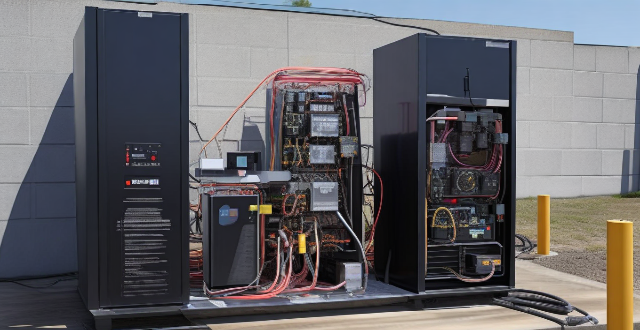
What are the maintenance requirements for a parallel hybrid electric vehicle (PHEV) ?
Maintenance Requirements for a Parallel Hybrid Electric Vehicle (PHEV) include regular check-ups of the battery system, engine maintenance such as oil changes and air filter replacement, transmission maintenance including fluid checks and cooler maintenance, tire rotation and pressure adjustment, brake pad and rotor replacement, suspension maintenance like shock and strut replacement, and other tasks such as coolant system checks, wiper blade replacement, and light bulb checks. By following these requirements, you can ensure your PHEV runs smoothly and safely.

How do parallel hybrid electric vehicles (PHEVs) compare to traditional gasoline cars in terms of performance ?
Parallel Hybrid Electric Vehicles (PHEVs) offer better acceleration and fuel efficiency than traditional gasoline cars but may have lower top speeds and require more time for recharging. Gasoline cars have higher top speed capabilities and quicker refueling but are less efficient and require more maintenance. The choice between the two depends on individual needs and preferences.
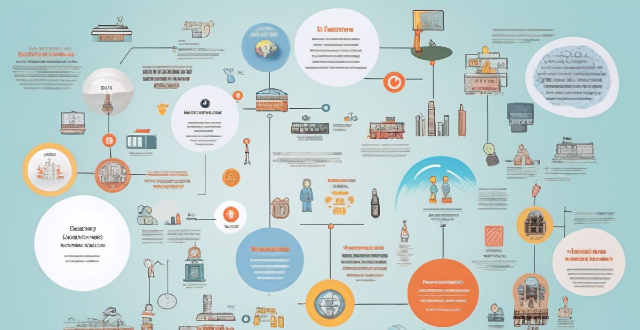
What are the latest updates in education policy ?
The latest updates in education policy focus on improving the quality of education, increasing accessibility, and preparing students for future challenges. Key areas of reform include remote learning and online education, inclusive education, curriculum reform, teacher professional development, and funding and resource allocation. These changes aim to create a more effective and equitable educational system for all students.

When is the next iOS update expected to be released ?
The next major iOS update, likely to be named iOS 17, is expected to be announced at Apple's Worldwide Developers Conference (WWDC) in June 2023, with a public release anticipated in the fall. Minor updates and security patches may be released throughout the year without a fixed schedule. To stay informed about updates, users can check Apple's website, enroll in the Beta Software Program, follow tech news, or regularly check for updates in their device settings.

How do I update my apps on the App Store ?
Updating apps on the App Store is essential for maintaining the latest features and security patches. Here's a guide to help you update your apps: 1. Open the App Store app on your iOS device. 2. Tap on your profile picture in the top right corner. 3. Scroll down to the "Upcoming Automatic Updates" section. 4. Review the list of apps with available updates. 5. Update individual apps by tapping the "Update" button next to each app's name. 6. Update all apps at once by tapping the "Update All" button. 7. Wait for the updates to download and install. 8. Check for any remaining updates and repeat the process as necessary. 9. Close the App Store app when finished. Additional tips include enabling automatic updates, checking for updates regularly, and managing storage space. By following these steps, you can ensure that your apps are always up to date and provide the best performance and features.